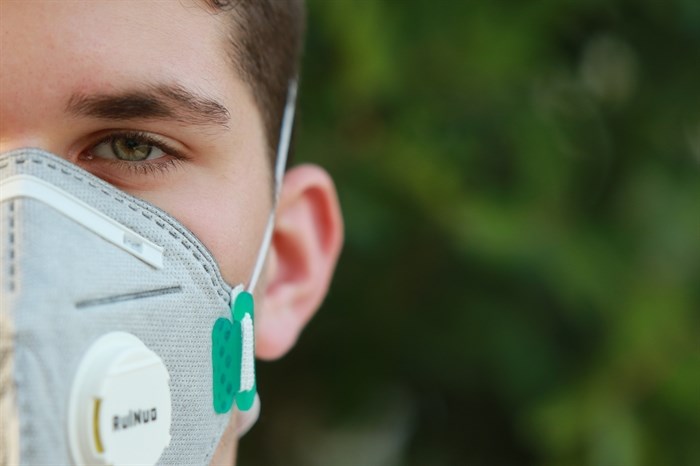
Image Credit: PIXBAY
November 30, 2020 - 6:00 AM
With an uptick in anti-maskers being reported to authorities after the provincial health officer mandated mask use in public places, a communications expert says the number of actual people who refuse to wear a mask is quite low in B.C., considering the circumstances.
“I really would emphasize that the number of people participating in these anti-mask (rallies) are still quite small in B.C. compared to, say Quebec or Germany," said UBC professor Heidi Tworek, who recently co-authored a report on democratic health communications during COVID-19. "Demonstrations are a part of democratic culture and they’ve actually been quite small in B.C. compared to other places in Canada or in Europe or in North America."
Since Dr. Bonnie Henry mandated, Nov. 19, that all masks be worn in public spaces, protests have been reported across B.C. including a group of roughly 70 people that walked through Orchard Park Shopping Centre this past weekend. Costco and other businesses have started calling the RCMP on those who refuse to wear masks indoors.
READ MORE: Anti-mask protest held at Kelowna mall
There are a number of different reasons why people feel uncomfortable wearing masks, including how the broader global information on masks is distributed, like coming from the U.S. where mask use has been politicized, Towrek said.
“Another comes from the confusion around mask wearing. Back towards the beginning of the pandemic, there may have been some skepticism on the efficacy of masks, and then for some there’s also potentially a gender aspect. We often see that it’s men who are more reluctant to wear masks,” she said. “It’s also a very quick change. There are certain communities in Vancouver, particularly Asian-Canadian that actually are quite used to wearing masks… but for others, this is something new.”
Towrek has some advice on how to communicate with anti-maskers. She said it starts with listening to their concerns instead of being dismissive and not by throwing facts and figures at them.
“Try to establish a dialogue where you can ask some questions,” she said.
Some anti-mask protestors may have legitimate concerns, she said, and this may be an opportunity to share insight and weave facts into the conversation rather than getting into a shouting match.
READ MORE: Addressing anti-mask protests poses a challenge for leaders, experts say
In order to reach residents with accurate information, public health officials have to meet people where they’re at, Towrek said.
“It’s about figuring out how you package messages towards different groups of people and on social media channels that reach them there. Figuring out, for example, what kind of message makes sense for the person going to an anti-mask rally and that’s a different challenge than the person who casually forgot their mask when they go to the shop,” she said.
“Some of that is about social media, but some of it is about pulling in civil society,” she said, adding that relaying information from trusted figures has been a successful strategy elsewhere in the world.
In Dakar, the capital of Senegal in West Africa, graffiti artists created murals or even used Facebook Live to spread public health messages.
“It doesn’t have to be Ryan Reynolds doing a PSA,” she said.
With the growing number of COVID-19 cases in the province the question for health officials is: are we communicating what is required now in a way that makes sense to people?
“We’ve seen some confusion that seems to have gone beyond what we’ve seen in prior phases in terms of what people are supposed to do in the whole province,” she said. “This is not a bad time to go back to the basics… like creating graphics that make sense, being as open and transparent with modelling as possible and we’ve seen some good and useful explanations came out of Fraser Health… in a really neat graphic that it easy to understand.”
But there’s also room for improvements, like diversity in public health messaging. Meet people where they’re at, she said, not just in their state of mind, but also what they’re required to do every day. An essential worker may not have the same messaging requirements as others that aren't on the frontlines.
In the province, there was a lot of attention to factors that weren't seen in other places including a guide on inclusive language and a survey of British Columbians was conducted to understand where the misinformation is and how it can be corrected, she said.
She also offered suggestions to improve social media messaging to the public.
“I think there are some people who are trying to understand why things are happening… so you can use social media or other outreach to provide an explanation on why decisions are being made in the way they are, or in some cases reinforcing a message," she said.
Repeated messaging in different formats could reach different audiences, but that’s also a challenge depending on institution capacity, she said.
“Most people aren’t watching a press briefing at 3 p.m. since they’re picking up kids from school or they’re working on something else, so it’s one of the challenges of public health during the 21st century, there is no one way to reach everybody. You have to have the capacity to reach a whole host of people in different ways,” she said.
To contact a reporter for this story, email Carli Berry or call 250-864-7494 or email the editor. You can also submit photos, videos or news tips to the newsroom and be entered to win a monthly prize draw.
We welcome your comments and opinions on our stories but play nice. We won't censor or delete comments unless they contain off-topic statements or links, unnecessary vulgarity, false facts, spam or obviously fake profiles. If you have any concerns about what you see in comments, email the editor in the link above.
News from © iNFOnews, 2020